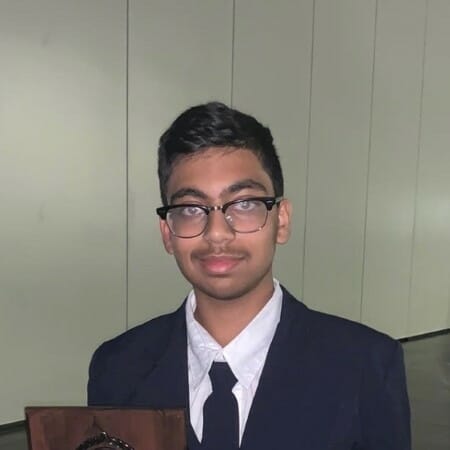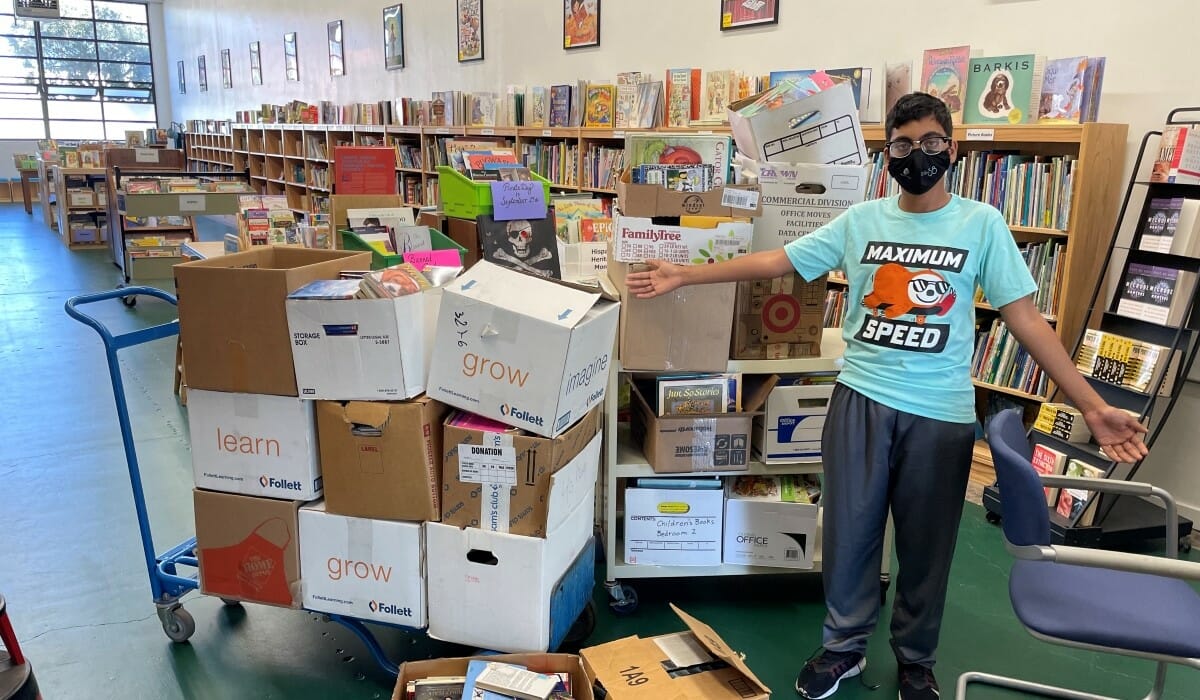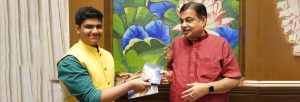(November 26, 2023) When Saket was around nine years old, he went home to visit his grandparent’s home in India with his parents. While he was playing with the local kids, he realised that several of those kids did not go to schools regularly, or had books to study at home. He noticed the absence of adequate resources and learning tools for proper education in schools serving underprivileged communities. “It was in 2017,” says the entrepreneur, adding, “Since then I have been striving towards helping kids around the world through what I think is a resource many needy kids lack: proper education and learning tools. The experience I got from my trip in the beginning led me to the conclusion that children don’t get the exposure to education that they need.”

Currently studying at the Silver Creek High School in San Jose, California, Saket Pathak is the founder of Learning Quest, a non-profit initiative that focusses on distributing books and other learning supplies to underprivileged children in various parts of the world. The young entrepreneur, who recently won the prestigious Diana Award, has been energetically gathering funds and books from donors globally, contributing over 8,000 books to 20,000 children in the USA, India, and Africa. The Global Indian‘s initiatives have garnered media attention, secured several grants for Learning Quest, and served as inspiration for numerous individuals to join the noble cause.
A boy with a mission
He was only in the third grade when after learning about the gender gap in education, Saket started rooting for girls’ rights. “I have been advocating for education rights and accessibility without any boundaries of gender or financial constraints since I was quite young. I even hosted local spelling bees and used the donations to give back to an organisation specialising in education,” said the entrepreneur.
But the kid genius doesn’t just have a golden heart and passion for an educated world. He shared, “I have been coding since elementary school and can work with the languages of Python and Java. I am also skilled in HTML / CSS, which is what, was used to create the website for Learning Quest. I am currently delving into learning about Swift, which will help the creation of the “in development” Learning Quest mobile application. All of this will help in the creation of the Learning Quest technology side.” His other strength, he adds, is in marketing. “My mission was to spread the word about Learning Quest to as many people as possible and impact as many lives as possible.” The Learning Quest team has buit a network of partners and collaborators and also made it onto the local news. “We will soon expand to a team of volunteers around the globe and sustain more partners in donations of books as well as scaling our mobile application,” Saket explains.
Empowering minds
Founded in 2022 by Saket, Learning Quest has been exclusively dedicated to distributing books donated by individuals, schools, and libraries in the USA to underprivileged children in India. Speaking about the mission of his organisation, the entrepreneur said, “When a child is deprived of essential resources, what they do afterward and their perception of the world is changed as an effect. With proper education comes the ability to think better, earn better, and explore new horizons. But if a kid does not attend a school or lacks educational resources, their view of the world would be constrained, they pick low-income jobs early in their life and this cycle keeps going in a loop.”
According to Learning Quest data, approximately 40 percent of children living in poverty lack access to the necessary education. In certain regions of the USA, both teachers and students face financial constraints, hindering their ability to provide a quality education for children. “Roughly 72 million children are affected by this issue and therefore are not prepared for the real world. This can lead to many things such as unemployment, poor health, under-representation, and even cases of exploration,” he explained.


In the process of developing an app for the oganisation to make the service accessible to more and more kids, Saket has grand plans for Learning Quest. “We have already impacted many children and know how we can further develop Learning Quest for the better. We have been able to gather fundamental information to better understanding how the application should be created and which areas will be impacted the most. Going ahead, I wish to build a sustainable enterprise working in several communities or countries that are looking to grow significantly, focussing on increased efficiency,” shared the entrepreneur.
- Follow Saket Pathak on LinkedIn




